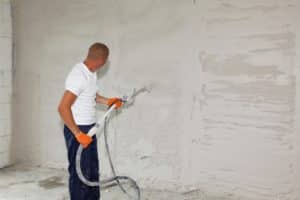Man’s Mesothelioma Blamed on Work in World Trade Center in 1960s
People who spent decades working in construction, in shipyards, and in factory settings make up the vast majority of today’s mesothelioma victims. Men like William Theophil, who worked as a union member in multiple job settings, were exposed to asbestos in countless ways, so the list of companies that they pursue in the name of justice can be long. One of the defendants Mr. Theophil has named in his recently filed personal injury lawsuit is the company formerly known as ALCOA. He points to their negligent application of asbestos-contaminated fireproofing spray in Tower A of the World Trade Center as being partially to blame for his fatal diagnosis.

Mesothelioma Victim Points to Asbestos in Fireproofing Spray
According to testimony Mr. Theophil provided in support of his mesothelioma claim, he worked as a steamfitter and a member of the union on the 7th floor of Tower A of New York’s ill-fated World Trade Center when it was being built in the 1960s. He recalls ALCOA’s employees spraying fireproofing material on the building’s curtain wall, and how the dust from the spray filled the air and was impossible to avoid inhaling.
In response to being named in Mr. Theophil’s mesothelioma lawsuit, ALCOA filed a motion for summary judgment. They asked to be dismissed from the case based on their assertion that the insulation had been applied by a subcontractor hired by the Port Authority, and argued that they should not be held responsible for that company’s negligent actions. They also claimed that the victim’s testimony belied his own assertions, and indicated that he was too far from the area where the carcinogenic material was being sprayed to have inhaled the toxic asbestos fibers.
Court Denies Company’s Motion to Dismiss them from Mesothelioma Liability
Though ALCOA’s attorneys argued strenuously against being held legally responsible for Mr. Theophil’s asbestos exposure and subsequent malignant mesothelioma diagnosis, the court denied their petition. The judge pointed to New York precedent that required deference to the victim in personal injury cases. As a result, the court ruled that his testimony about being in the presence of the sprayers was sufficient for a jury to be presented with the evidence and make the decision as to whether the company was negligent or not.
Cases like William Theophil’s underscore how asbestos exposure during large-scale construction projects, including iconic sites like the World Trade Center, continues to result in mesothelioma diagnoses decades later. Courts increasingly recognize that companies involved in applying asbestos-containing materials cannot avoid liability by pointing to subcontractors or distance from the work area. When asbestos fibers are released into enclosed construction environments, exposure often extends far beyond the immediate application zone. For workers diagnosed with mesothelioma, this legal reasoning expands the scope of accountability and reinforces the right to pursue claims against multiple responsible parties, even many years after the original exposure occurred.


FREE Financial Compensation Packet
- Info on law firms that will recover your HIGHEST COMPENSATION
- Learn how to get paid in 90 days
- File for your share of $30 billion in trust funds

